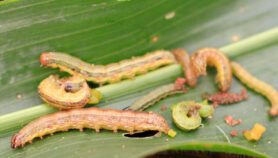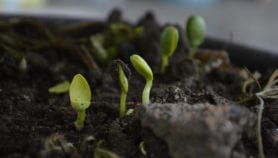Send to a friend
The details you provide on this page will not be used to send unsolicited email, and will not be sold to a 3rd party. See privacy policy.
[NEW DELHI] An Indian university has accused the former head of its forestry department of ‘biopiracy’, saying he illegally gave valuable plants to a foreign company that now employs him.
The company, UK-based D1 Oils, denies there is an issue. It says that although the young jatropha trees are growing on its land, they still belong to the Indira Gandhi Agricultural University in Raipur, central India.
Last week, the university filed a formal complaint against its former employee Sunil Puri, who also denies any wrongdoing. The police are investigating the claims.
Researchers have hailed the oil-rich seeds of jatropha trees as a source of biofuel — a ‘green’ alternative to polluting fossil fuels (see The bumpy road to clean, green fuel).
India plans to produce this biofuel on a large-scale from plantations of the trees, which grow wild in parts of the country, including Chhattisgarh, the state where the university is located.
In February 2005, the university began collecting jatropha plants from nearby forests and creating small plantations to compare the yield of seeds from trees grown in different environments.
The university’s research director, A.S.R.A.S. Sastry, told SciDev.Net that D1 Oils had asked to collaborate on the project, but the university’s vice-chancellor had declined.
But according to Puri and D1 Oils, the vice-chancellor did give the go-ahead for some of the jatropha specimens to be planted on the company’s enclosed test site, whose soil conditions differ from those of the university’s sites.
Puri says he took about 1,500 three-month-old seedlings there in November 2005, and that this was done ‘above board’ using a university tractor and in the company of two colleagues.
Shortly after that journey Puri quit his university post and, just days later, became technical director of D1’s Indian operations.
According to Sastry, Puri left the university without completing the mandatory formalities. This triggered an enquiry, which concluded by accusing Puri of illegally giving the trees to his future employer.
Puri and D1 deny that they have exploited Indian biological resources without ensuring fair compensation to their country of origin, a practice known as ‘biopiracy’.
D1’s head of communications, Graham Prince, told SciDev.Net: "The plants were tagged and delivered by the university then planted in one corner of our field so the university staff could supervise them. They are still there and they belong to the university."
"This is a storm in a teacup," added Prince. "It smacks more of confusion than something sinister."
In 2002, the Indira Gandhi Agricultural University was embroiled in another controversy, when it tried to enter into an agreement with Swiss company Syngenta to develop hybrid rice varieties.
The deal would have given Syngenta access to a unique set of 19,000 strains of local rice varieties, collected by one of the university’s scientists in the 1970s.
When scientists and non-governmental organisations criticised the plan it was dropped (see Syngenta drops plans for Indian rice venture).
Rupantar, a Raipur-based non-governmental organisation working on biodiversity issues points out that a committee set up to investigate the rice deal has still not made its findings public.
The university "has failed to protect the bio-resources of Chhattisgarh of which it is presumed to be custodian," says Suresh Sahu, head of Rupantar.













